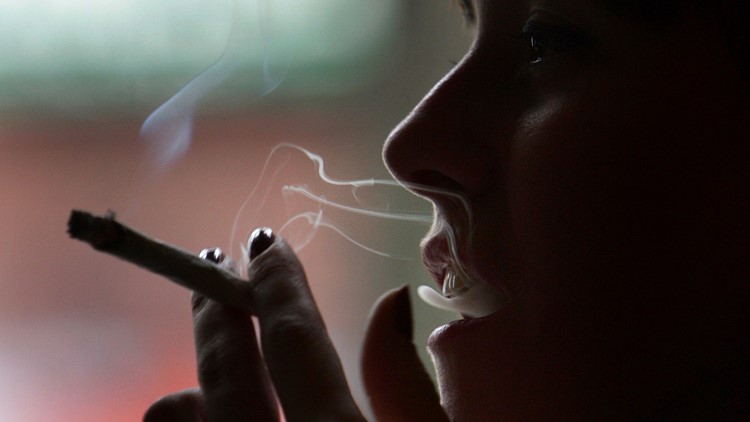LANSING — Michigan voters decided to free the weed, but that doesn't mean Michiganders will be able to use cannabis wherever they please.
Although adult marijuana use is expected to become legal on Dec. 6, consumption will be prohibited in cars, K-12 schools and in public places, such as parks and sidewalks. Additionally, landlords can bar tenants from growing or smoking marijuana on their properties.
Here's what tenants need to know about legalization.
What exactly will Proposal 1 do?
A new state law will allow people ages 21 and older to buy, possess, grow and use marijuana.
The law, however, explicitly gives landlords the option to ban growing or smoking marijuana on properties they own. Landlords cannot bar people from consuming marijuana in ways other than smoking; that means edibles and topical skin products will be allowed.
And landlords cannot stop tenants from possessing marijuana in a rental home. State law will allow people to keep up to 10 ounces of marijuana in a household, so long as any amount over 2.5 ounces is kept in a locked container.
If not prohibited by a landlord, Michiganders will be allowed to grow up to 12 marijuana plants at home for personal use.
What about vaping?
Michigan's initiated statute states a property owner, "may not prohibit a tenant from lawfully possessing and consuming marihuana by means other than smoking."
There is some debate, however, about whether the definition of "smoking" includes inhaling vaporized marijuana through a practice called vaping.
Vaping may not meet the definition of smoking, which means landlords cannot legally stop tenants from vaporizing the drug, said attorneys Jeff Hank and Thomas LaVigne, both of whom advocated for marijuana legalization.
But, Saulius Mikalonis, who leads the cannabis practice at the Plunkett Cooney law firm, believes that a ban on smoking would extend to vaping. He did suggest, however, that, if landlords are concerned, they could add language to their leases to specifically address vaping.
What if it's medical marijuana?
Landlords can restrict marijuana on their properties, even if the drug is used for medical purposes.
Medical marijuana has been legal in Michigan since 2008, but a 2017 state law allows landlords to stop tenants from growing or smoking medical marijuana. As is the case with recreational marijuana, landlords cannot stop tenants with medical marijuana from using non-smokable products, such as edibles.
Isn't marijuana still illegal at the federal level?
Although 10 states have legalized recreational marijuana, the federal government still classifies cannabis as a schedule 1 drug, the same class as heroin.
Leaders at public universities across Michigan, including Michigan State University, have warned students marijuana use will continue to be prohibited on university property, including residence halls.
Officials have suggested they could lose federal funding if they do not comply with federal laws, including the Drug-Free Workplace Act.
What about public housing?
Because marijuana is illegal at the federal level, the Lansing Housing Commission prohibits marijuana use at the more than 800 public housing units it manages throughout the city.
That prohibition also applies to people who use the U.S. Department of Housing and Urban Development's housing choice voucher program, said Interim LHC Executive Director Doug Fleming. People in that program could risk losing their housing subsidy if they are caught with marijuana.
Residents, particularly those who are elderly or disabled, occasionally raise concerns about medical marijuana, Fleming said.
The LHC's marijuana prohibition does include medical marijuana in all its forms, Fleming said. He added, however, that, as a practical matter, enforcement has focused on marijuana smoking rather than less noticeable ways of ingesting the drug.
The Lansing Housing Commission adopted a no-smoking policy for all its properties in 2011.
What will landlords do?
Doug Benson forbids smoking at the 81 residential units he owns in Lansing and Holt. That ban includes vaping, and applies to both tobacco and marijuana.
"Smoking is smoking is smoking," said Benson, who co-owns Esker Properties with his wife, Deborah.
The company adopted its no-smoking policy nearly five years ago to save money — it's easier to turn over apartments when there are no nicotine stains, Benson said.
Since then, Benson says the smoking ban has been a "huge draw" for prospective tenants, many of whom worry about secondhand smoke or dislike the smell of cigarettes.
Esker Properties doesn't have a policy on growing marijuana, whether for recreational or medical use, and Benson said that issue hasn't come up. Benson does have tenants who make cannabis-infused butter for medical purposes. That process hasn't caused any problems, Benson said.
Sandy Bailey-Bristol, president of the Rental Property Owners Association of Mid-Michigan, bans smoking any substance at the residential properties she manages. Landlords often choose to ban smoking because of insurance liabilities and the risk of fires, she said.
"It's not that most landlords are personally against marijuana," Bailey-Bristol said. "It's just something that has to be dealt with. Nobody wants to be a test case."
Contact Sarah Lehr at (517) 377-1056 or slehr@lsj.com. Follow her on Twitter @SarahGLehr. RJ Wolcott contributed reporting.



